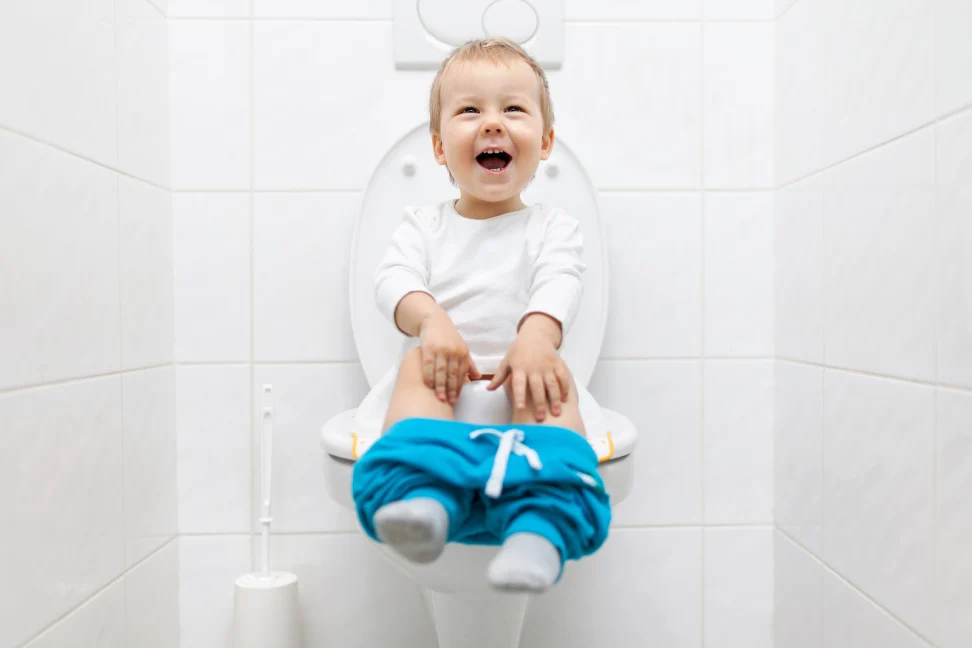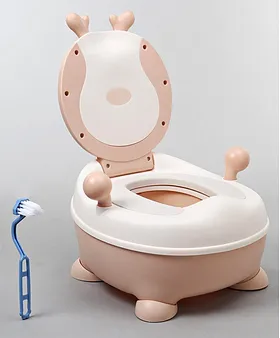Potty training is a milestone for both children and parents. It’s a time of great accomplishment and pride. But what happens when potty training isn’t going as smoothly as planned? Accidents happen, and that’s okay! Potty training not working? Here’s some information to help you navigate those potty training hiccups.
Understanding Regression
Regression is normal. A child who previously seemed potty trained might start having accidents again. This can be frustrating, but it’s important to stay calm and positive. There are many reasons why regression might occur. Here are a few:
Developmental Milestones:
Sometimes, regression coincides with developmental leaps. Your child might be so focused on learning a new skill that they forget about using the potty.
Big Changes:
Big life changes like a new sibling, moving to a new home, or starting daycare can all trigger regression.
Medical Issues:
Occasionally, regression can be a sign of a urinary tract infection (UTI) or other medical issue. If you’re concerned, talk to your doctor.
If your child regresses, focus on positive reinforcement and a relaxed approach.

Keeping Communication Open
Communication is key throughout potty training. Here are some tips for talking to your child:
-
Use simple language: Explain things in a way your child can understand.
-
Focus on positive reinforcement: Praise your child for their potty training efforts, not just successes.
-
Answer questions honestly: If your child asks why they wear diapers or underwear, answer truthfully and simply.
-
Listen to your child’s concerns: Address any anxieties your child might have about using the potty.
Open communication can help make potty training a smoother process.
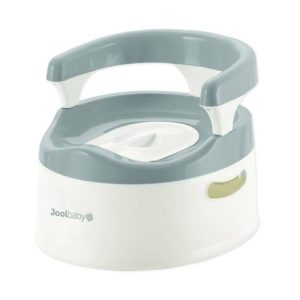
The Power of Positive Reinforcement
Positive reinforcement is much more effective than punishment during potty training. Here are some ways to use positive reinforcement:
-
Praise and encouragement: Celebrate your child’s successes, no matter how small.
-
Sticker charts: Sticker charts can be a fun way to motivate your child.
-
Reward system: Consider a simple reward system for using the potty successfully.
Focus on making potty training a positive experience for your child.
Double-Checking the Basics
Sometimes, seemingly simple things can cause potty training setbacks. Here are some basics to revisit:
-
Is your child drinking enough fluids? Dehydration can lead to accidents.
-
Is your child’s potty comfortable to sit on? An uncomfortable potty might discourage them from using it.
-
Is your potty routine consistent? Regular potty breaks can help prevent accidents.
-
Are there distractions in the bathroom? Remove distractions that might take your child’s attention away from using the potty.
By revisiting the basics, you can identify any areas that might need adjustment.
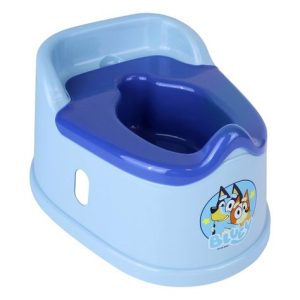
When to Talk to Your Doctor
Most potty training hiccups can be resolved at home. However, there are times to talk to your doctor. Here are a few situations to consider:
-
Frequent accidents: If your child is having accidents several times a day after several weeks of consistent potty training, talk to your doctor.
-
Painful urination: If your child seems to be in pain when they urinate, this could be a sign of a UTI.
-
Blood in the urine: Blood in the urine always warrants a call to your doctor.
-
Straining or withholding urine: If your child seems to be straining to urinate or withholding urine, talk to your doctor.
If you have any concerns about your child’s potty training, reach out to your doctor for guidance.
Potty training is a journey, not a race. There will be ups and downs along the way. Stay patient, consistent, and positive. With time and effort, your child will be potty trained.
Making Potty Time Fun and Engaging
Potty training can be more enjoyable for both you and your child when it incorporates fun and engagement. Here are some ideas:
-
Fun Potty Seat: Let your child pick out a colorful or themed potty seat that they like.
-
Potty Books: Read books together about potty training. There are many children’s books that can help make potty training more relatable and fun.
-
Sing Songs: Sing songs together while your child sits on the potty. This can help take their mind off things and create a positive association.
-
Potty Games: Play simple games while your child sits on the potty. Look at bath books, sing songs, or tell stories. Keep it short and engaging.
By making potty time fun, you can encourage your child to participate.
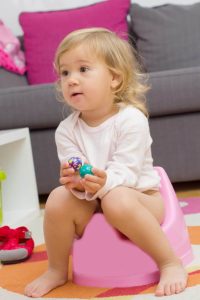
Creating a Potty-Training Routine
Consistency is key during potty training. Here are some tips for creating a routine:
-
Scheduled Potty Breaks: Schedule regular potty breaks throughout the day, even if your child doesn’t seem like they need to go.
-
Potty Time After Liquids: Take your child to the potty after they drink liquids like milk or juice.
-
Potty Before Bed and After Waking: Make using the potty a regular part of your child’s bedtime and wake-up routine.
-
Potty After Playtime: Take potty breaks after playtime or other activities.
A consistent routine can help your child develop good potty habits.
Accidents Happen: Offering Comfort and Avoiding Power Struggles
Accidents are inevitable during potty training. Here’s how to handle them:
-
Stay calm and reassuring: Accidents happen. Avoid getting angry or frustrated.
-
Clean up together: Let your child help you clean up accidents in an age-appropriate way. This can help them take ownership and learn from the experience.
-
Offer comfort: Let your child know it’s okay and that they can try again next time.
-
Avoid punishment: Punishment for accidents can make your child anxious and discourage them from using the potty.
Focus on making potty training a positive experience, even with accidents.
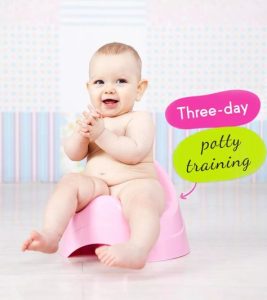
Conclusion: Patience and Persistence
Potty training takes time and patience. There will be setbacks along the way. Celebrate the successes, no matter how small, and offer encouragement. With time and consistency, your child will be potty trained.
When you decide to restart potty training, here are some things to keep in mind:
-
Age is just a guide: Don’t feel pressured by age milestones. Start potty training when your child shows signs of readiness.
-
Relaxed approach: Maintain a relaxed and positive attitude. This will make potty training more enjoyable for everyone.
-
Focus on the basics: Review the basics of potty training, like consistent routines and positive reinforcement.
Remember, potty training is a journey. Be patient, celebrate successes, and enjoy this special time with your child.


